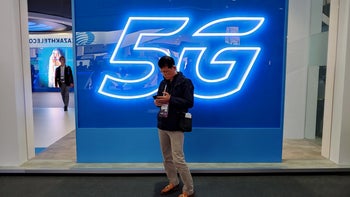AT&T continues its sluggish 5G+ expansion

If you've been following the onslaught of comprehensive reports released by the likes of OpenSignal, RootMetrics, and Ookla over the last year or so analyzing the state and evolution of the US 5G mobile industry, you may have noticed one major carrier tends to earn far less praise than the other two.
That's because AT&T consistently trails behind T-Mobile in terms of low-band 5G availability while covering a considerably lower number of cities than Verizon with its blazing fast mmWave-based 5G+ signal. On top of everything, Ma Bell doesn't have the resources to catch up to Magenta's towering mid-band 5G network rollout and expansion efforts anytime soon either.
For what it's worth, the nation's third-largest wireless service provider is at least making some progress in the 5G+ arena, bringing its Verizon 5G Ultra Wideband-rivaling connectivity to a major new city. Or rather "parts" of a new city, as the super-advanced mmWave technology makes it impossible to blanket large areas of land with insane download speeds of "up to 1Gbps."
Instead, AT&T's Chicago customers will need to settle for obtaining "unprecedented performance" from their supporting smartphones in a few "iconic parts of the Windy City." Specifically, inside The Loop, along The Magnificent Mile, and inside the United Center arena. That's it, that's the entire launch, and keep in mind that various obstacles like walls or trees could always downgrade you to a "standard" 5G signal even in those places.
Chicago is officially joining a disappointingly short list of cities covered (in small part) by AT&T's 5G+ service, although if it makes you feel any better, the carrier's significantly slower low-band 5G network is currently billed as reaching "over 225 million Americans, in more than 14,000 cities and towns."
The problem is the latter numbers still pale in comparison with the 270 million people across a staggering 1.4 million+ square miles covered by T-Mobile's own "nationwide" 5G network, while Verizon's list of places where you can achieve 5G Ultra Wideband speeds (if you're lucky) is definitely longer than AT&T's counterpart. But hey, at least Ma Bell is moving ahead (albeit at an arguably sluggish pace).

















Things that are NOT allowed: